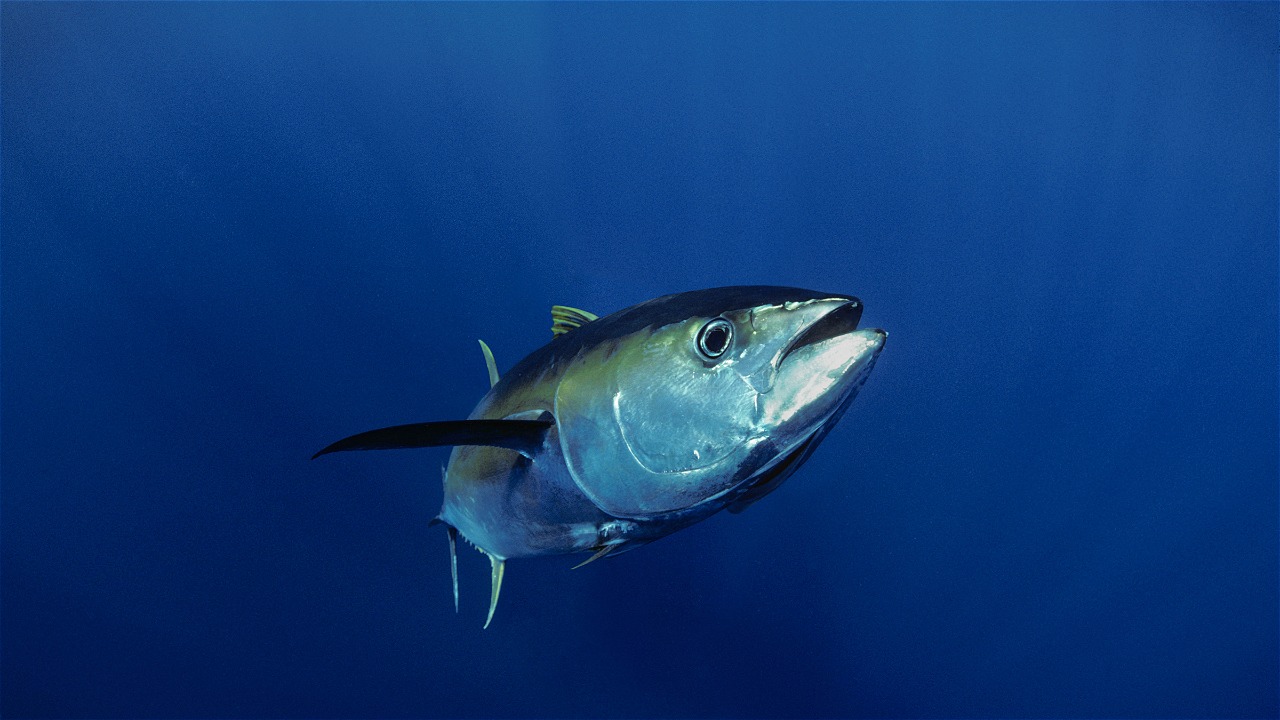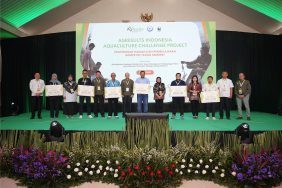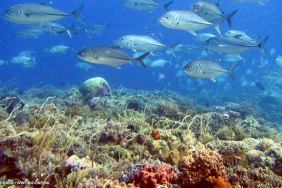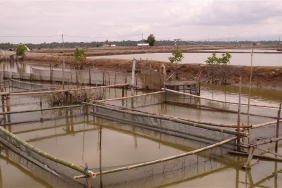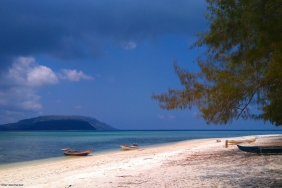BUILDING THE SPIRIT OF SUSTAINABLE TUNA FISHERIES IN INDONESIA
Denpasar - At the closing of the National Tuna Symposium, a collaboration between WWF-Indonesia and the Ministry of Maritime Affairs and Fisheries (KKP) which took place in Denpasar today (11/12), an understanding was reached that the future trend of the Indonesian tuna market will increasingly lead to the concept of sustainability through the need for ecolabeling and traceability.
The National Tuna Symposium, which took place yesterday (10/12) and for the first time carried the theme of improving fisheries management towards sustainable practices, aims to gather the widest possible information from the results of studies and field findings of academics, researchers, and industry players regarding the condition of Indonesian tuna fisheries. The results of these studies and findings show the need to immediately make improvements to tuna fisheries that lead to sustainable practices and are then formulated as recommendations that are useful for policy makers in Indonesia.
The symposium results show that the current status of the exploitation rate of several types of tuna is very alarming, namely fully exploited (fully exploited) to over-exploited (over-exploited). This downward trend in tuna stocks threatens the livelihood of fishermen and the tuna business industry in Indonesia. The decline in catch per unit effort (CPUE) from year to year, the rampant capture of juvenile tuna as a result of the uncontrolled use of FADs; the number, type of fleet and fishing gear that has not been optimally controlled; the absence of harvest control rules; and the rampant practice of IUU fishing (Illegal, Unreported and Unregulated), are some of the main threats causing the decline in tuna stocks in nature.
However, private involvement in efforts to improve tuna fisheries management shows positive indications of improvement through the efforts of the ecolabel program, although the number is still not significant. The level of compliance with the resolutions of Regional Fisheries Management Organisations (RFMOs) as the world's tuna fisheries management authority, especially for the issue of catch data collection through the onboard observer program and fishery logbook in Indonesia also shows positive indications.
Wawan Ridwan, WWF-Indonesia's Coral Triangle Program Director, said, "WWF-Indonesia is ready to oversee every effort to improve tuna management in Indonesia towards sustainable practices, because as one of the main tuna producing countries in the world, Indonesia must make changes to win the market from other countries that have first printed ecolabel certified tuna products, such as the Maritime Stewardship Council (MSC)."
Indonesia has a strong involvement and contribution in the management of tuna fisheries in the world. In 2011, no less than one million tons of Indonesian tuna were exported to various countries such as Japan, the United States and several countries in the European Union, with an export value reaching IDR 11 trillion per year. One of the keynote speakers, Luky Adrianto, Head of IPB's Center for Coastal and Marine Resources Studies (PKSPL), emphasized that sustainability aspects should not solely be seen as a cost, but rather as part of the long-term investment of the fisheries business.
The Director of Fish Resources of KKP, Toni Ruchimat, who was also present at the symposium, also argued that improving management aspects, resource aspects, technological aspects, and data and information aspects are still homework that needs to be addressed immediately so as not to affect the availability of tuna resources in nature and business continuity. The development and trend of market demand for environmentally friendly tuna products is also a challenge and opportunity for Indonesia. Therefore, the spirit of togetherness and cooperation of all parties, both at the local and national levels, is needed in an effort to save tuna resources and habitats through the promotion of sustainable and environmentally friendly tuna fisheries management.
Note to Editor:
- The National Tuna Symposium, which was open to the public, was attended by more than 200 participants. There were about 144 papers presented in 2 days with 7 keynote speakers discussing 6 main topics, namely stock status for tuna fisheries; harvest control rule; technology development and sustainable tuna fishing fleet; sustainable and equitable tuna fisheries market; sustainable tuna policy and management; and Indonesia's fisheries requirements and resolutions.
- National Tuna Symposium.
- Key speakers in the National Tuna Symposium 2014 are: Toni Ruchimat (Director of Fish Resources - DJPT, KKP), Agus A. Budhiman (Indonesian Pole and Line and Handline Fisheries Association - AP2HI); Abdul Ghofar (Chairman of the National Fish Resources Assessment Commission); Indra Jaya (Dean of the Faculty of Fisheries and Marine Science - IPB); Luky Adrianto (Chairman of the Center for Coastal and Marine Resources Studies - IPB); Purwanto (Researcher, Indonesia Marine and Climate Support- IMACS); Lida Pet Soede (Deputy Director of WWF Global Marine Program); and Wawan Ridwan (Director of Coral Triangle Program- WWF-Indonesia)
- .
- Regional Fisheries Management Organizations (RFMOs) are regional tuna fisheries management authorities, of which Indonesia is a full member of 3 of the world's 5 RFMOs namely: Indian Ocean Tuna Commission (IOTC - www.iotc.org); Western and Central Pacific Fisheries Commission (WCPFC - www.wcpfc.int); Commission of Conservation Shoutern Bluefin Tuna (CCSBT - www.ccsbt.org)
.
For more information, please contact:
Imam Musthofa, Fisheries and SBS Program Leader, WWF-Indonesia
Email: imusthofa@wwf.or.id

